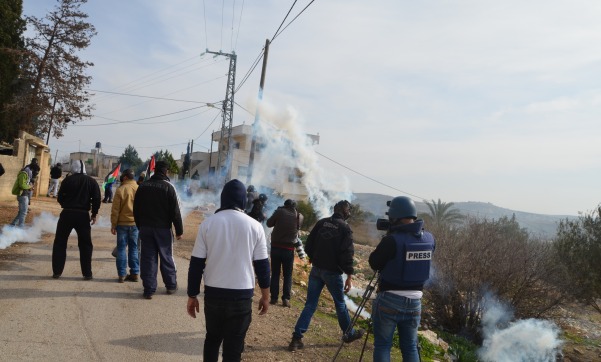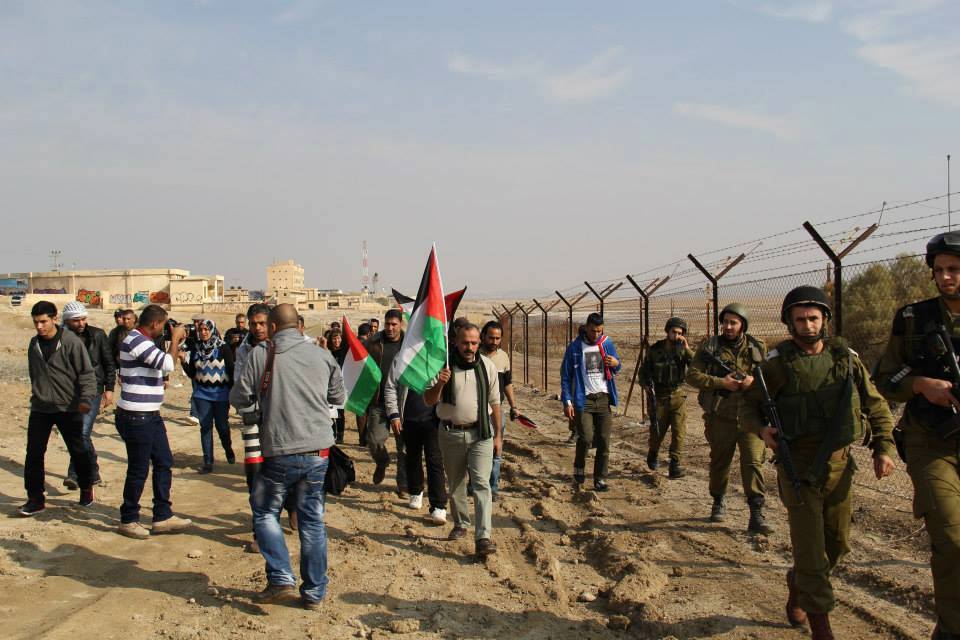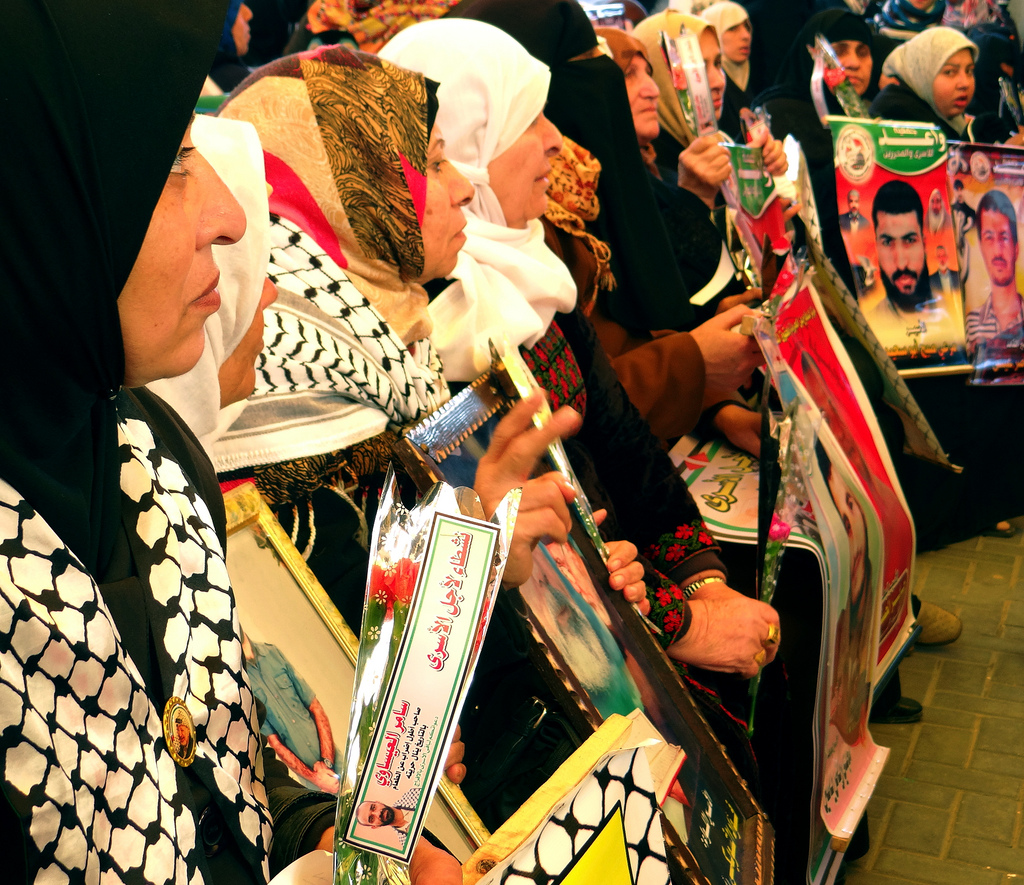Tag: Demonstration
-
One Palestinian arrested during demonstration in Kafr Qaddum
03rd January 2014 | International Solidarity Movement, Nablus Team | Kafr Qaddum, Occupied Palestine Today, at the weekly Kafr Qaddum demonstration, Israeli soldiers and border police violently suppressed the protest and arrested a Palestinian citizen. Clashes between Palestinian youth and Israeli soldiers erupted after the Friday prayer when the Israeli military began bulldozing pre-made stone barricades…
-
Protest march towards the Dead Sea
03rd January 2014 | International Solidarity Movement, Khalil Team | Jericho, Occupied Palestine On the 1st January, at approximately 12pm, 40 Palestinian and international activists attempted to march towards the Dead Sea in an effort to protest against the proposed Israeli bill to annex the Jordan valley. Israeli forces prevented the demonstration from reaching the shore, in response the…
-
Photos: Palestinians rally for prisoners in Gaza as Samer Issawi freed in Jerusalem
27th December 2013 | International Solidarity Movement, Marco Varasio | Gaza, Occupied Palestine On 23rd December, like every Monday morning, relatives and friends of the Palestinian prisoners in Israeli jails gathered at the International Committee of the Red Cross’ Gaza office for the weekly rally. But people at the rally had another reason to gather:…



